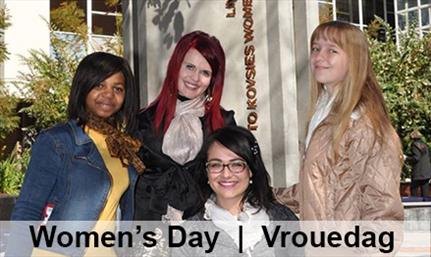|
 |
Photo: Stephen Collett
20 August 2013 |
Photo Gallery
Female staff of the university gathered on Thursday 8 August 2013 in a pre-celebration of Women’s Day. An atmosphere of indulgence enveloped the Women’s Memorial Garden with smartly-dressed waiters serving high tea to the group while a string trio provided soothing melodies.
Beneath this luxurious backdrop, though, ran a deep and sincere current of kinship. The three speakers – women from diverse age groups and backgrounds – all had one clear message: love. Being a woman is being love – in all its various forms: from being tender to standing up for what is right.
Prof Jonathan Jansen, Vice-Chancellor and Rector, reflected on the 20 000-strong women’s march in 1956 to the Union Buildings. Using this example, he expressed his wish for the women of South Africa to unite once again across race and creed to the benefit of our country.
Not only did a sense of courage and strength permeate the celebration, but the group dispersed with the beat in their hearts: you strike a woman, you strike a rock.
The university has several more celebratory events planned for Women’s Month. The program line-up is as follows:
16 August 2013 – for women students,
23 August 2013 – for women secretaries and admin staff,
30 August 2013 – for women in cleaning services,
date in August to be confirmed – for women in academics.